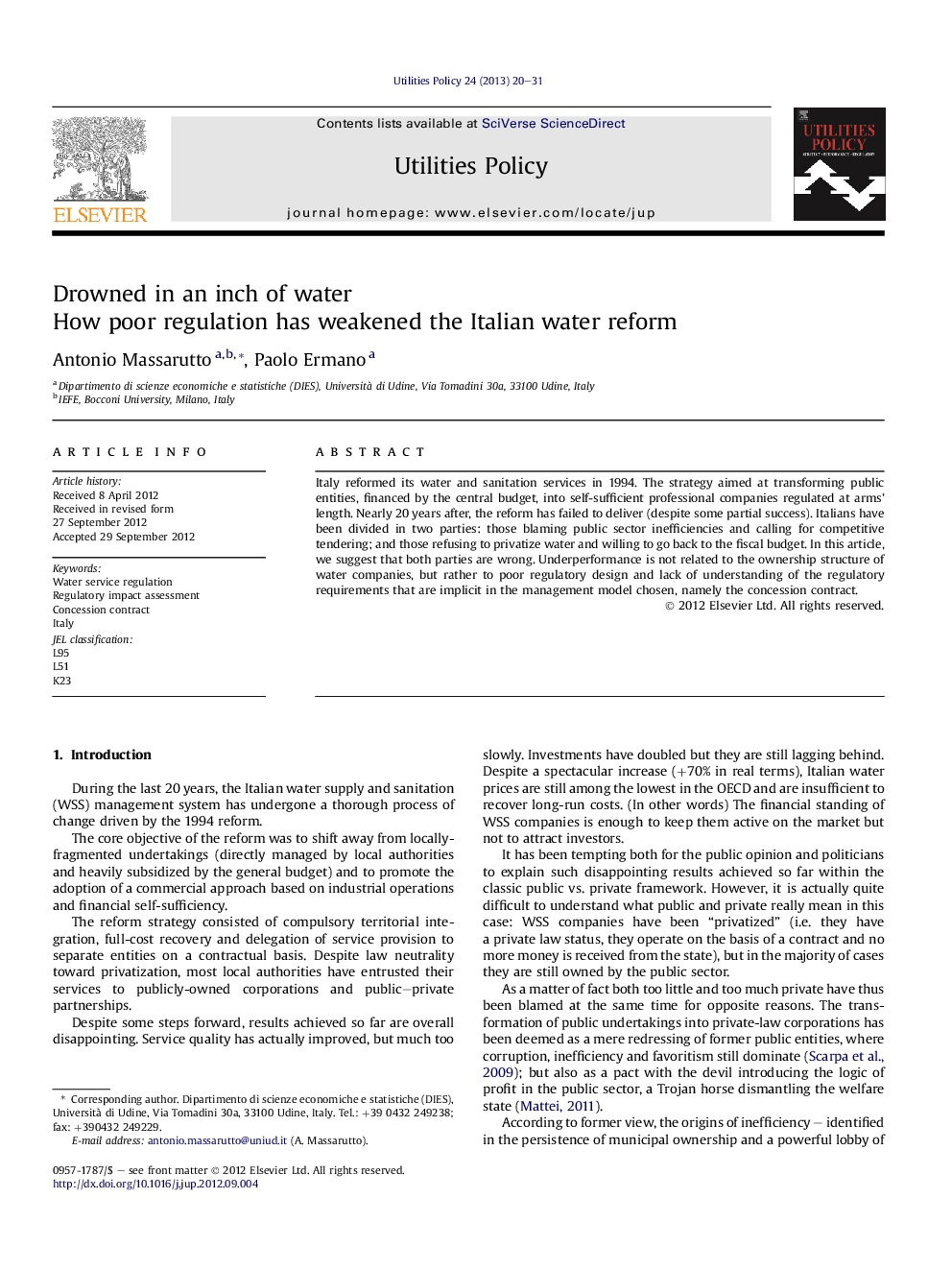| Article ID | Journal | Published Year | Pages | File Type |
|---|---|---|---|---|
| 1000306 | Utilities Policy | 2013 | 12 Pages |
Italy reformed its water and sanitation services in 1994. The strategy aimed at transforming public entities, financed by the central budget, into self-sufficient professional companies regulated at arms' length. Nearly 20 years after, the reform has failed to deliver (despite some partial success). Italians have been divided in two parties: those blaming public sector inefficiencies and calling for competitive tendering; and those refusing to privatize water and willing to go back to the fiscal budget. In this article, we suggest that both parties are wrong. Underperformance is not related to the ownership structure of water companies, but rather to poor regulatory design and lack of understanding of the regulatory requirements that are implicit in the management model chosen, namely the concession contract.
► The stalemate affecting the Italian water and sanitation industry after the 1994 reform and the 2011 referendum is analyzed. ► Micro-institutional failures of the regulatory system are discussed. ► We show that the private versus public debate is fundamentally misplaced. ► Governing water concessions is difficult on the sole base of contracts; ongoing discipline of renegotiation is fundamental. ► Alternative institutions are needed, e.g. independent authorities, aimed at supporting renegotiation and settling disputes.
